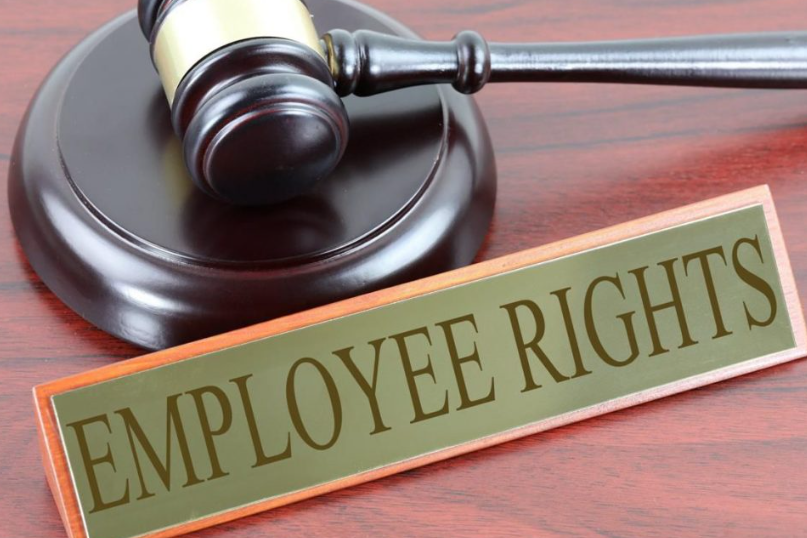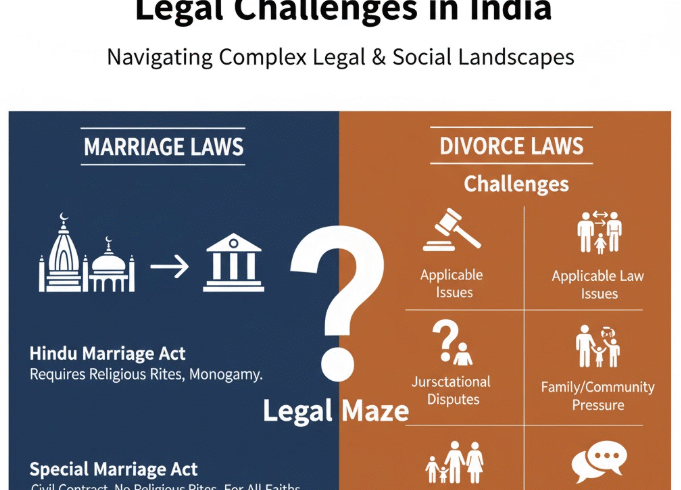Latest: October 2025 | Based on Indian Labour Laws
Are you working as a salaried employee in India? So it may come as a shock that you have a whole set of legal rights very few people know about! While all of us are aware of basic base-level labour rights such as salary and leave, there are many provisions which entitle Indian laborers to several unspoken securities.
In this comprehensive guide, we will discuss six crucial legal rights all salaried employees should be aware of. They can help guard you against unfair treatment, get you the benefits to which you’re entitled and keep your work life healthy. It doesn’t matter if you work in private industry, for a start-up or behemoth multinational: These rights apply to you.
Why Know Your Rights?
Numerous Indian workers toil without knowing their full legal protections. Over sixty percent of full-time employees are not aware of their basic employment rights, according to recent polls. This ignorance can result in exploitation, wrongful dismissals and the denial of benefits.
60%+ of Indian professionals don’t personally know about all of their legal rights at work
When you are aware of your rights, you can advocate for yourself if something unfair occurs. You can also make smarter career decisions and make sure your employer is treating you fairly in the eyes of the law.
Right #1: Protection from Quick Job Loss
It is not uncommon for employees to think that they can be terminated at any moment without notice, particularly if they are in their probationary period or have a job in the private sector. This is not entirely true!
What the Law Says
The Industrial Employment (Standing Orders) Act, 1946 and various state labor laws provide that an employer is required to observe due process before terminating the services of an employee. Employees also have certain rights, even when they are fired.
Key point: If your company has 100 or more employees, they need to get consent from the government before laying you off. This is as per the Industrial Disputes Act, 1947.
Your Rights During Termination
| Situation | Notice Period Rights | Liability |
|---|---|---|
| Regular Employment | 30-90 days (as per contract) | Payment in lieu of notice, settlement of dues |
| During Probation | 14 days minimum | Pro-rata salary, unused leave encashment |
| Without Cause | Full notice period | Severance pay, Gratuity (if applicable) |
| Company Closure | 60 days minimum | Retrenchment compensation, PF, gratuity |
What You Can Do: In case your employer lays you off without giving notice or cause, you can either complain at the Labor Commissioner’s office or go to court. Make sure to retain all employment papers, emails and appointment letters as evidence.
Right #2: Equal Pay for Equal Work
Were you aware that even if you hold the same position as your male counterpart, there is a right to equal pay? This has nothing to do with your sex, caste, religion or whatever.
Legal Foundation
However, the Equal Remuneration Act 1976 expressly prohibits payment of wages to women being at rates less favourable than those for men. Further, Article 39(d) of the Indian Constitution provides for equal pay for equal work to both men and women.
It’s this right, and not just gender equality. Courts in India have typically held that employees with same job and similar qualifications and experience should draw the equal pay scales irrespective of mode of appointment or background from which they are appointed.
Example in the Real World: The Supreme Court, in a high-stakes case, decided that workers employed under contract with an organization to perform the same job as permanent employees should receive equivalent pay. It’s a principle applied in many fields.
What Qualifies as “Equal Work”
- Similar job responsibilities and duties
- Comparable qualifications and skills required
- Same cognitive load and accountability
- Similar working conditions
- Equivalent experience levels
Actionable Takeaway: If you find yourself being paid less than your peers for similar work, start documenting the variations. If not, you could raise the issue with HR — and if it wasn’t resolved satisfactorily, consider taking it to the Equal Remuneration Authority or making a complaint to the Labor Department.
For more information on labor rights and legal guidance, visit Zista Legalis.
Right #3: Paid Paternity/Maternity Benefits
Establishing or growing a family should not be the reason someone loses their job or ends up out of money. Indian law delivers solid protections to new parents, and especially mothers, but many workers are unaware of the full scope of their benefits.
Maternity Benefits for Women
The Maternity Benefit Act, 1961 (Amended in 2017) is an exhaustive law protecting working mothers. These entitlements are available to all enterprises with a workforce of 10 or more.
| Benefit Type | Duration/Amount | Eligibility |
|---|---|---|
| Paid Maternity Leave | 26 weeks (for first two children) | Minimum of 80 days in last 12 months |
| For Third Child and Beyond | 12 weeks | Same as above |
| Commissioning/Adopting Mother | 12 weeks | From date of custody |
| Medical Bonus | ₹3,500 minimum | If employer has no facilities |
| Work From Home Option | Post maternity leave period | Based on nature of work |
Paternity Benefits for Men
There’s no specific federal law around paternity leave but there are many states and the Feds themselves offer some kind of paternity benefits:
- Central Government Employees: 15 days paternity leave on full pay
- Several State Governments: 5-15 days of leave for paternity
- Private employer: In accordance with company policy, but more common
Hidden Right: Employers may not discharge a woman because of pregnancy or after childbirth, nor can they issue her notice of dismissal. This protection also applies during the whole of a woman’s absence on maternity leave.
How to Claim: Notify your employer in writing at least eight weeks before you are due. Provide medical certificates as required. Your employer cannot deny these benefits to you, or discriminate against you for using them.

Right #4: Coverage for Work Injuries and Health Issues
If you’re injured at work or become sick as a result of your employment, you are entitled to be compensated. It is one of the most breached rights among salary earners.
The Employees’ Compensation Act, 1923
This act guarantees that if you are injured, or develop an occupational disease as a result of your employment, your employer is responsible to pay for it! This remains true even if the injury was caused by accident.
Compensation covers situations like:
- Injury on the job or at work-related activities
- Industrial diseases (like fume-filled factory rat lungs)
- Work stress-induced mental health problems (at least in some cases)
- Office commute accidents (in some cases)
- Chronic health problems as a result of working environment
Forms of Compensation You Can Recover
| Nature of Injury | Benefits Payable |
|---|---|
| Temporary Disability | Monthly Rate – 50% monthly wage |
| Permanent Total Disability | Rate – 60% monthly wage (× appropriate factor [age]) |
| Permanent Partial Disability | Proportionate loss of earning capacity |
| Death in Work Related Activity | 50% × Wages × appropriate factor to living dependents |
Recent Trend: Work-related stress, including depression and anxiety, has been recognized as a compensable injury by the courts in certain matters.
Critical Actions: Tell your employer about any injury at work right away. Get medical documentation. Report your claim within two years of incident. If your employer denies compensation, you may contact the Labor Commissioner.
Right #5: Safety of Your Provident Fund and Gratuity
As a matter of fact, your retirement benefits such as Provident Fund (PF) and Gratuity are not company benefits – they are your statutory entitlements secured by law. Many workers don’t realize that the protections are so clear.
Employees’ Provident Fund (EPF)
All entities that employ more than 20 individuals have to get registered under the Employees’ Provident Fund and Miscellaneous Provisions Act, 1952. This is the money you and your employer both deposit into.
EPF Contribution Breakdown
| Component | Employee | Company | Object |
|---|---|---|---|
| EPF | 12% of basic salary | 3.67% of basic salary | Retirement corpus |
| EPS (Pension) | – | 8.33% of basic salary | Monthly pension after 58 |
| EDLI (Insurance) | – | 0.5% of basic salary | Life insurance cover |
Your Rights Regarding PF
- On-time Deposit: The PF money must be deposited by the employer by 15th of every month. Delays attract penalties.
- Interest: You get interest on your PF amount (currently 8.15% for 2023-24)
- Withdrawal Rights: Withdrawn for purposes such as home purchase, medical emergencies, education or loss of employment
- Transfer: Your PF is transferable when you change job – You don’t lose any of it
- Nominee Rights: The nominee or legal heir gets the full amount in case of death of the policy holder
Gratuity Rights
The Payment of Gratuity Act, 1972 is applicable to an establishment which employs 10 or more individuals. You are entitled to get gratuity after five years of your continuous service.
Gratuity Formula: (Basic + DA) last drawn × 15/26 × No. of years of service
Maximum: ₹20 lakhs (as per prevailing law)
What to Do: You should periodically monitor your PF balance using the EPFO portal or mobile app. Make sure your employer is sending contributions in a timely way. If he does not pay the PF on time, file a complaint on the EPFO grievance portal or get in touch with the Regional PF Commissioner directly.
Learn more about employee benefits and rights at the Ministry of Labour & Employment.
Right #6: Working Conditions That Are Safe and Healthy
Everyone has the basic right to work in a safe, healthy and harassment-free workplace. That also includes women’s physical safety and the freedom to work in an environment free from harassment.
Physical Safety at Workplace
The Occupational Safety, Health and Working Conditions Code, 2020 amalgamates several labour laws to provide for safe working conditions. Your employer must provide:
- Clean and hygienic workplace facilities
- Adequate lighting and ventilation
- Safe machinery and equipment
- First aid and medical provision
- Fire protection appliances and escape routes
- Clean drinking water and washrooms
- Ergonomic chair and desks (especially for IT workforce)
Protection Against Workplace Harassment
There is a strong deterrent against sexual harassment provided under the Sexual Harassment of Women at Workplace (Prevention, Prohibition and Redressal) Act, 2013. All employers with 10 or more staff are required to have an Internal Complaints Committee (ICC).
What amounts to Harassment: Physical contact and advances, a demand or request for sexual favors, sexually colored remarks; showing pornography; any other unwelcome physical, verbal or non-verbal conduct of a sexual nature.
Your Rights Against Harassment
| Right | Details |
|---|---|
| File a Complaint | Report to ICC within 3 months of incident, extendable up to 6 months |
| Confidentiality | Your identity and complaint is kept confidential |
| Protection from Retaliation | Employer cannot fire or retaliate against you for reporting |
| Transfer Option | You may request transfer during investigation |
| Quick Resolution | ICC must complete inquiry within 90 days |
Mental Health and Work-Life Balance
Earlier regulations did not explicitly mention these, but new judicial pronouncements and modern labour laws have taken note of the well-being of workers as also regulated work hours.
Take Action: If you do experience unsafe conditions or harassment, write everything down. Go and report to ICC or concerned authority. If things fail internally, take your complaint to the Local Complaints Committee or Labour Department. Just remember, it’s illegal to retaliate for complaints.
-
🧍♂️ When tax laws fail citizens, justice suffers: Tax vs Justice – When Laws Fail the Common Citizen
Exercising Your Rights Effectively
Simply knowing your rights is just the beginning. This is how you can exercise and defend them effectively:
Documentation is Key
- Retain copy of appointment letter, contract of employment and all addenda
- Keep all salary slips and a record of all payments
- Save emails and written communications with HR and the management
- Document all the violations and wrongs you are being subjected to, with specifics like date included
- Keep track of your PF contributions and statement
Know Where to Complain
| Issue Type | Whom to Complain | How to Complain |
|---|---|---|
| PF Related | EPFO Grievance Portal | epfigms.gov.in |
| Wage Disputes | Labour Commissioner Office | State Labour Department |
| Workplace Harassment | Internal ICC/Local Committee | Company HR or District office |
| Wrongful Termination | Labour Court | Through lawyer/legal aid |
| General Labour Issues | Shram Suvidha Portal | shramsuvidha.gov.in |
Seek Legal Help When Needed
Do not hesitate to discuss serious violations with labor law experts or attorneys. Some state governments provide employees with free legal aid. Authorities such as the National Commission for Women, State Legal Services Authority and different labor unions can also come to your assistance.
For expert legal consultation on employment matters, visit Zista Legalis.

Frequently Asked Questions
Q1: Can my employer make me work overtime with no additional pay?
A: No. Under the Factories Act and a number of Shops and Establishments Acts, overtime work is to be paid at double the ordinary hourly rate. Your employer cannot make you work overtime without paying you according to the law. But certainly have a look at your employment contract; in some roles, particularly senior positions, you may have a different arrangement.
Q2: Multiple job switches? What will happen to my PF if that happens?
A: Your PF stays with you throughout your career. You do not need to withdraw it when you switch jobs. Rather transfer your old employer’s PF to new using UAN. This helps keep your retirement kitty growing and also keeps the contribution history intact.
Q3: Can I be terminated while out on medical leave?
A: Generally, no. If you are on an authorized medical leave and provided proper medical certificates, they cannot dismiss your services during this time. But the length of protected medical leave depends on corporate policy and local labor laws. Longer absences may be a different issue under employment contracts.
Q4: Do contractual employees and consultants have these rights?
A: It is a matter of your employment relationship. If you only work for one company, are told such things as when to be at work and what steps to perform while there, and receive routine checks or direct deposits on a schedule that suits the employer, then even if they refer to you as a “consultant” or “contractor,” your status could actually be employee. Courts tend to focus on actual working relationships, rather than labels. To contract workers, as to so many others, there have been social rights that were extended only through court decisions (like equal pay for equal work).
Q5: What if my company is not depositing my PF contribution?
A: First, look at your PF passbook from the EPFO portal. If contributions are missing, and you know they should be there, address the issue with your HR department in writing. If not resolved, file a grievance on the EPFO portal (epfigms.gov.in). The EPFO, after inquiry, can penalize your employer for non-compliance.
Q6: What is the time frame within which I must file a complaint about workplace harassment?
A: You need to make your complaint to ICC within 3 months from the date of incident. But, if the ICC is satisfied that there was good cause for not filing on time, then this period can be extended up to 6 months. Filing outside of 6 months becomes a challenge without good cause.
Q7: If I am allowed to work from home after maternity leave, can my employer ask me to return to the office?
A: The Maternity Benefit Act allows working from home to mothers after the period of maternity leave as per the nature of work. If your job is capable of being done remotely, then that is what your employer should be offering. But it varies with mutual agreement and depending on what line of work you are in. You can also go to the labor authority if you are refused unfairly.
Your Rights, Your Protection
You, as a salaried employee in India do have comprehensive labor laws to protect you that many don’t know much about. From the right to protection against unfair dismissal, compensation for injury at work, equal pay rights and maternity benefits through to safe working conditions and retirement with dignity – these rights guarantee fair treatment in the workplace.
The best defense is awareness. Now that you are armed with these six hidden legal rights, you can more easily spot the violations and take action when they occur. Remember:
- Always retain documentation of your employer relationship
- Know where and how to lodge a complaint if rights are violated
- When a weighty issue is involved, do not shy away from legal advice
- Keep up to date with changes in employment law
- Share this information with co-workers
Your workplace rights are not a privilege that you owe your employer — they are legal entitlements the Indian state has guaranteed. Use them wisely, call out when they’re not being honored, and work to make a fairer workplace for us all.
If you liked this article, then please share it with your friends and colleagues. The more you learn, the more power you have.





